One thing Jennifer Welsh doesn't mention is that the defeat of the Soviet Union was
viewed as a triumph not of democracy over authoritarianism but of
capitalism, particularly Reagan/Thatcher neoliberalism, over communism.
So capitalism became the ruling system not democracy. Neoliberalism is
almost treated as sacred by parties on all sides. Neoliberalism expanded
the equality divide and that is threatening to turn democracy into oligarchy or raw authoritarianism. It is the dominant economic and political ideology.
Thatcher claimed that there was no such thing as society, only individuals and families. She was wrong but she has manged to create those very conditions. We are living in the a world where society is or has broken down down into competing individuals and families of interest. This is the Golden Age of Neoliberal Capitalism where the compassion required to help others and work together for the greater good has been deregulated to death and sold. Profit has replace true progress as a goal. This is Thatcher's dream made real.
Democracy requires society. An anarchy of competing individuals inevitably becomes authoritarian as advantages enable a few, then one, to take power. Good for business, not for civilization.
It is no coincidence that precarious work, wage stagnation, and equality, had been ballooning for over 30 years. Neoliberalism unfettered personal and corporate greed, eviscerated unions and labour rights, took away trade regulations that protected gains in living standards and rights, and channelled most of the economic gain to top. To investors. It enabled business to take advantage of more easily exploited populations without punishment buy taxes or consumers.
The Alberta Employment Standards declare that there is no difference between so-called part-time and full-time employees. No difference in hours they can be worked, but certainly a difference in pay and benefits. In fact the standards consider it fair for an employee of either type to be worked eight hours per day for up to 24 days straight as long as they are given four days off before being made to work another twenty four. This is work without unions. This is the "new" labour market. There is nothing new about it. It is a regression to the labour conditions that existed before unions. It is no wonder that businesses, many of whom are sitting on profits from tax breaks instead of investing them in jobs, are ditching full-time positions and replacing them with "part-time" ones. Precarious employees stay in line and don't complain. Especially ones that have had to collect massive debt for education and to make up for stagnant wages and no benefits. The labour market is regressing, along with our economies, governments, societies, and democracies.
Inequality is the basis and goal of unrestrained competition. There are always far more losers. Regulations, taxes, and unions helped equalize the effects of capitalism. Trade barriers that prevent exploitation and tax avoidance while protecting labour rights and standard of living, are not xenophobic, anti-trade, or"protectionist", just sensible.
We are living in the free market world where everything is either a cost, a resource, or profit. Where everything is for sale, truth has been replaced by advertising, and opinions gang up on facts. What we have now is a race to the economic, social, and political bottom with only the investors betting on it achieving any wins. Pleasing investors has become the sole goal of most businesses and governments making them the de facto rulers of most nations. The neoliberal oligarchy where only profit has rights, a voice, person-hood, and freedom. Where only investors are citizens.
Time and effort define labour and labour defines the value of a product or service. Labour is the basis of economy and currency. But neoliberalism treats labour as a cost and not the source of true capital. Capital is currency in its view. Labour is a cost. Thus currency produces currency without labour and labour is devalued and discarded. Neoliberalism's solution to its damage is more of the same on steroids.
Thatcher's war on labour must end before all life on the planet becomes casualties.
This is taken further in the article following the lecture passages where the idea of the Market as a god is examined. Neoliberalism would be the fundamentalist form of this religion, the Golden Calf replaced by the Bull.
Communism was the balance to the fundamentalist marketism of neoliberal capitalism. It forced capitalist countries to institute and protect labour rights and social safety nets to prevent citizens from going communist. When the authoritarian socialism of communism collapsed, neoliberals claimed socialism had been discredited, conveniently ignoring the Scandinavian success with a more social capitalism, a democratic socialism. Pushing this narrative and keeping the successes out of the media, neoliberals no longer feared revolution by the oppressed and immediately attacked labour rights and safety nets in the name of competitiveness and austerity, both for the benefit of investors. Neoliberalism became promoted as the one true way. Economic assumptions became the dogma of marketism and economists the prophets. Instead of burning those who dare question the blind faith, they relegate such heretics to the fringe.
But, that's just my point of view.
If anyone has
questions for Jennifer Welsh write to masseyquestions@cbc.ca
The 2016 CBC Massey Lectures - "The Return of History"
 Jennifer Welsh delivers the 2016 CBC Massey Lectures, "The Return of History". By Ideas
Jennifer Welsh delivers the 2016 CBC Massey Lectures, "The Return of History". By Ideas
In his 1989 essay The End of History? American thinker Francis Fukuyama suggested that Western liberal democracy was the endpoint of our political evolution, the best and final system to emerge after thousands of years of trial and error. Fukuyama seems to have been wrong: our recent history -- filled with terrorism and war, rising inequity and the mass flight of populations -- suggests that we've failed to create any sort of global formula for lasting peace and social equity. In the 2016 CBC Massey Lectures, Jennifer Welsh explores how pronouncements about the "end of history" may have been premature.
The Return of History is published by House of Anansi Press.
The 2016 CBC Massey Lectures will be broadcast on IDEAS October 31 - November 4.
Lecture 1: The Return of History - Monday, October 31
Lecture 2: The Return of Barbarism - Tuesday, November 1
Lecture 3: The Return of Mass Flight - Wednesday, November 2
Lecture 4: The Return of the Cold War - Thursday, November 3
Lecture 5: The Return of Inequality - Friday, November 4
Jennifer Welsh is Professor and Chair in International Relations at the European University Institute in Florence (Italy) and a Fellow of Somerville College, University of Oxford. From 2013 until 2016, she was the Special Adviser to the United Nations Secretary General on the Responsibility to Protect. She co-founded the Oxford Institute for Ethics, Law and Armed Conflict, and has taught international relations at the University of Toronto, McGill University, and the Central European University (Prague). Welsh is the author, co-author, and editor of several books and articles on international relations, the changing character of war, and Canadian foreign policy. She was born and raised in Regina, Saskatchewan, and is of Metis descent. She now lives in Italy, with her husband and two children.
The CBC Massey Lectures is a partnership between CBC, House of Anansi Press and Massey College in the University of Toronto. Named in honour of Vincent Massey, former governor general of Canada, since their creation in 1961 by the CBC, the Massey Lectures have established their place as a Canadian institution and become an annual highlight of our cultural life. The lectures provide a forum on radio where contemporary Canadian thinkers can explore crucial issues of our time. Former lecturers include Martin Luther King Jr., Margaret Atwood and Stephen Lewis.
Monday October 31, 2016
Lecture 1: The Return of History
 The 2016 CBC Massey Lectures: The Return of History 1:13
The 2016 CBC Massey Lectures: The Return of History 1:13
Listen to Full Episode 53:58
In his 1989 essay The End of History? American thinker Francis Fukuyama suggested that Western liberal democracy was the endpoint of our political evolution, the best and final system to emerge after thousands of years of trial and error. Fukuyama seems to have been wrong: our recent history -- filled with terrorism and war, rising inequity and the mass flight of populations -- suggests that we've failed to create any sort of global formula for lasting peace and social equity. In the 2016 CBC Massey Lectures, Jennifer Welsh explores how pronouncements about the "end of history" may have been premature.
"At the heart of Fukuyama's thesis was the audaciously optimistic idea of progress in history. In fact, he claimed that history ... would effectively end, or culminate, in the victory of liberty - translated into the triad of elected governments, the promotion of individual rights, and the creation of an economic system in which capital and labour circulated with relatively modest state oversight."
Instead, we see human rights in danger all over the world, little progress in social mobility, the rise of right-wing and centralist governments and the mass fleeing of peoples towards western countries. If there is no end point of political development, and the world is unpredictable, then where do we look for the shape of the future?
**Please note: The 2016 CBC Massey Lectures are available to stream online until Friday, November 11. After this date they will be available for purchase on iTunes only.
Tuesday November 01, 2016
Lecture 2: The Return of Barbarism
 The 2016 CBC Massey Lectures: The Return of Barbarism 1:18
The 2016 CBC Massey Lectures: The Return of Barbarism 1:18
Listen to Full Episode 53:57
"In the summer of 2014, the so-called Islamic State (IS), locally known as Daesh, waged a violent campaign against civilian populations in Ninewa province in northern Iraq, home to many of the country's ethnic and religious minorities. As IS advanced on cities, towns, and villages, it systematically wiped out centuries-old communities and traditions, deliberately destroying shrines, temples, and churches, forcing residents to convert to Islam at gunpoint, executing community and religious leaders in public squares, kidnapping women and subjecting them to sexual enslavement, and coercing young boys to fight for IS. While the exact number of dead is still unknown, 800,000 people were forcibly displaced."
Half a decade ago, we saw the rise of freedom movements in a number of countries -- Egypt, Tunisia, Libya -- but today those gains seem mostly lost. Authoritarian regimes have been erasing the progress in human rights and democracy that we thought we were seeing, and the rules that govern conflict and maintain global peace are being erased.
Lecture 3: The Return of Mass Flight
 The 2016 CBC Massey Lectures: The Return of Mass Flight 1:32
The 2016 CBC Massey Lectures: The Return of Mass Flight 1:32
Listen to Full Episode 53:57
" ...and then there are those who have opened up their communities and homes to those fleeing their homeland. Starting the autumn of 2015, ordinary Europeans began to consider whether their spare storage rooms or bedrooms could be made available to asylum-seekers. ... And in our own country, in places like my home town of Regina, local churches are raising money to sponsor the resettlement of Syrian families. On the other hand, both national opposition to liberal asylum policies and local opposition to refugee processing and reception centres has been a growing phenomenon. "
Millions are on the move. Entire populations are leaving their home countries to find a better life elsewhere, creating two problems: what are we to do about the failed states left in the wake of this mass migration, and, what are the more stable Western nations supposed to do with this great mass of refugees and economic migrants at and within the borders? Both closing the borders and opening the borders raises questions about human rights, and the nature of the modern state.
Thursday November 03, 2016
Lecture 4: The Return of the Cold War
 The 2016 CBC Massey Lectures: The Return of Cold War 1:20
The 2016 CBC Massey Lectures: The Return of Cold War 1:20
Listen to Full Episode 53:57
"On the afternoon of February 22, 2014, in the Ukrainian capital of Kiev, you could smell the scent of revolution. Earlier that day, the country's parliament had voted to eject its reigning President, Viktor Yanukovych from power, following three months of protests and clashes ... Meanwhile, protesters rode atop trucks in the central avenues and squares of the city...celebrating what they believed would be the dawn of a new era in Ukraine's political future. Only a few hours later, however, in a city roughly 500 miles away, more fateful decisions were underway which would lead Ukraine down a more uncertain and violent path."
Fukuyama's essay was inspired by the apparent collapse of the Soviet Union in the late 1980's. But the Soviet Union -- or the idea of it, the muscle behind it -- is back. The Cold War, a kind of standoff between two superpowers, is not unique in human history, but today's version of the Cold War is triggering a domino effect -- instability in Ukraine and the Middle East, the return of a threat to liberal democracy.
Friday November 04, 2016
Lecture 5: The Return of Inequality
The 2016 CBC Massey Lectures: The Return of Inequality 1:19
Listen to Full Episode 53:58
"George Kennan, a key architect of the West's strategy for containing the old Soviet Union, was equally concerned about domestic policy, and the condition of American democracy. The 'greatest danger that can befall us in coping with this problem of Soviet communism', he wrote 'is that we shall allow ourselves to become like those with whom we are coping.' ... Liberal democracy endured and eventually triumphed over communism, much as Kennan hoped. But seventy years on ... there are strong reasons to believe that Kennan would be alarmed at the current state of the American polity, and with the condition of democracy in the West more generally."
There's a myth that great wealth enables our economies to grow, but wealth can actually stand in the way of economic development; inequity can slow us down. Fairness lies at the heart of liberal democracy, and in the face of unfairness, we rebel. Unfairness makes us work less hard to create a good society- why should I work hard, what's in it for me? Economic inequality inevitably translates into political inequality, which is not what we thought we were working towards.
From CBC Tapestry:
Sunday November 06, 2016
Is the Market the new God?
 Wall Street's Charging Bull in stained glass. From the cover of The Market God by Harvey Cox.
Wall Street's Charging Bull in stained glass. From the cover of The Market God by Harvey Cox.
Listen 26:14
This September in Montreal, acclaimed theologian Harvey Cox stood in front of a room full of the world's greatest minds in religion and told them about a conversation he'd had with a friend.
 Harvey Cox speaking at the 3rd Global Conference on World's Religions in Montreal, QC. (Eva Blue)
Harvey Cox speaking at the 3rd Global Conference on World's Religions in Montreal, QC. (Eva Blue)
"A few years ago a friend of mine said to me, 'You spend a lot of your years studying religion, studying theology and all of that. But if you want to know what's really going on in the world you want to read the Wall Street Journal and the business pages of the New York Times. Because that's where the real decisions are made. That's where things really happen.' So... I did."
Harvey Cox has been at the forefront of religious studies for over 50 years and is Hollis Professor of Divinity at Harvard University. When he took his friend's advice and turned his attention from the Bible to the business pages, he realized our relationship with the market has all the markings of a religion.
"It occurs to me that we now have, among the religions of the world […] the great powerful growing religion of Marketism."
In his new book The Market as God, Cox describes the underpinnings of what he refers to as the "deified market". He points to correlations between religious institutions and market capitalism to explain how consumerism is the new religious order.
Why is the Market the new god?
- At the core of the Market is a controlling narrative (you must consume to be fulfilled)
- The Market has a set of rituals (shopping)
- It has its own cathedrals and houses of worship (shopping malls)
- The Market has missionaries and priests who spread the word (advertisers, business executives, etc...)
"We often think about how Christian and Muslim missionaries or others have reached out the whole way around the globe. These missionaries are parochial in comparison with the enormous efforts and penetration of the missionaries of the Market God. There isn't a village anywhere in the world now -- I defy you to find one -- that hasn't been touched by the Market missionaries." - Harvey Cox- The Market has its own prophets, those who are engaged to look into the future, tell us what will happen, and tell us where to invest our funds
- The Market is omnipresent: it is everywhere. The use of Market values has permeated courtship and family life (such as paying children to do the dishes), medicine, and academia (Cox points to the way students are now viewed as customers). The ads on our computer screens and the telemarketers in our phones are more evidence of this omnipresence.
- The Market is omnipotent: we trust in the ultimate wisdom of the Market. Even after the financial crisis of 2008, which revealed the market's fallibility, Cox argues people continue to have faith in the market as a self-correcting deity that eventually will restore order. Cox responds, "The poor are still waiting."
- The Market makes use of parables. Cox describes how rabbis traditionally teach through parables and argues, "Every commercial is a mini parable":
Act 1: A person is troubled by something (restless legs, blemished skin).
Act 2: Somebody holding a bottle or a package promises a solution (get some today, do it now!)
Act 3: Happy resolution. Problem solved.Is it fair to say these qualities make it a religion?
To answer this question, Cox paraphrases anthropologist Clifford Geertz's widely accepted definition of religion:
Religion is a system of symbols which acts to establish powerful, pervasive, and longstanding moods and motivations. It formulates these in terms of a worldview that influences human behaviour over the long run.
Cox says, "This is exactly what the Market God is doing. It's a system of symbols, stories, narratives [...] It has its own rituals, its own temples, its own priesthood, its own prophets. It is a complete system. And it has established -- and is establishing -- long lasting moods and motivations, the objective of which is to get us to buy things."
Click LISTEN to hear Harvey Cox's full lecture as recorded at the Third Global Conference on World's Religions After September 11 in Montreal.
From the TED Radio Hour:
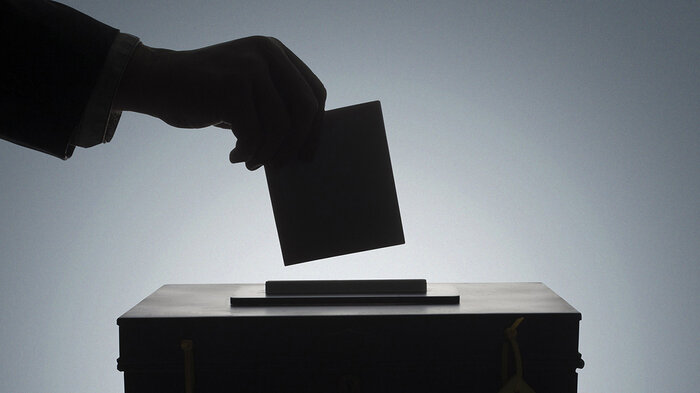
Democracy On Trial
Democracy is often hailed as the best form of government. But with a growing sense of distrust, should we rethink the whole system? This hour, TED speakers ask if democracy is truly our best option.
About Eric Liu's TED Talk
Eric Liu says that voting is the most important thing a citizen in a democracy can do. He says when we vote, even if it is in anger, we are part of a collective creative leap of faith.
About Eric Liu
Eric Liu is the founder of Citizen University, which teaches the art of powerful citizenship. Liu is also the executive director of the Aspen Institute Citizenship & American Identity Program. He's the author of several books, including A Chinaman's Chance, The Accidental Asian, and The Gardens of Democracy.
About Yanis Varoufakis's TED Talk
Yanis Varoufakis proposes a provocative idea: democracy is not compatible with capitalism. He argues corporations have gained too much control and advocates for an "authentic democracy."
About Yanis Varoufakis
Yanis Varoufakis teaches economic theory at the University of Athens. He is the former Minister of Finance of Greece.
About Sayu Bhojwani's TED Talk
Sayu Bhojwani urges her fellow immigrants to participate and find their own power in the political process in order to make democracy stronger.
About Sayu Bhojwani
Sayu Bhojwani served as New York City's first Commissioner of Immigrant Affairs and is the founder of South Asian Youth Action, a community-based organization in Queens. Since 2010, she has served as Founder and President of The New American Leaders Project, which is based in New York City.
About Sayu Bhojwani's TED Talk
Sayu Bhojwani urges her fellow immigrants to participate and find their own power in the political process in order to make democracy stronger.
About Sayu Bhojwani
Sayu Bhojwani served as New York City's first Commissioner of Immigrant Affairs and is the founder of South Asian Youth Action, a community-based organization in Queens. Since 2010, she has served as Founder and President of The New American Leaders Project, which is based in New York City.
About Jonathan Tepperman's TED Talk
After immersing himself in the politics of Brazil, Canada, Indonesia, and many other countries, Jonathan Tepperman emerges with an optimistic view: democracy is remarkably pliant — and resilient.
About Jonathan Tepperman
Jonathan Tepperman is the managing editor of Foreign Affairs. Tepperman's new book is called The Fix: How Nations Survive and Thrive in a World in Decline. It explores ten of the world's more pervasive and seemingly intractable challenges and shows that, contrary to general consensus, each has a solution.




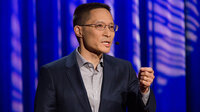
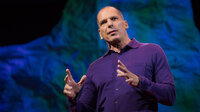
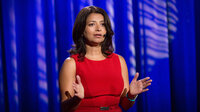

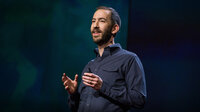
No comments:
Post a Comment